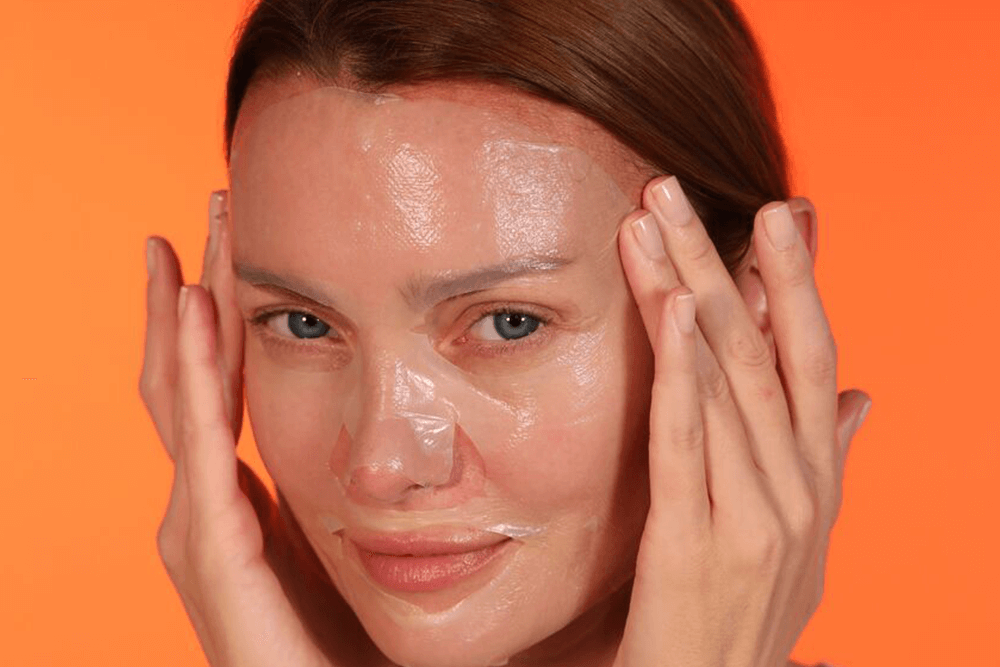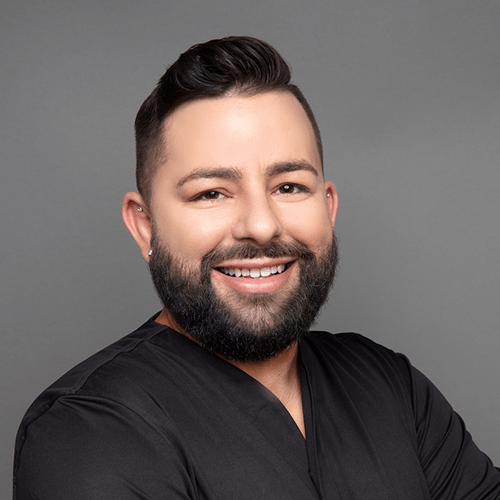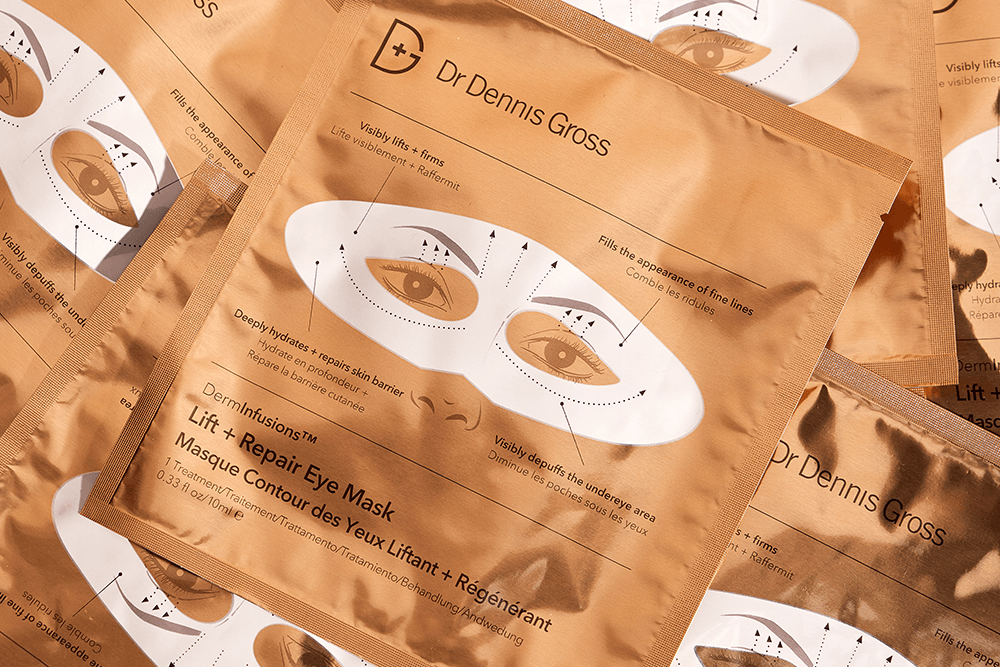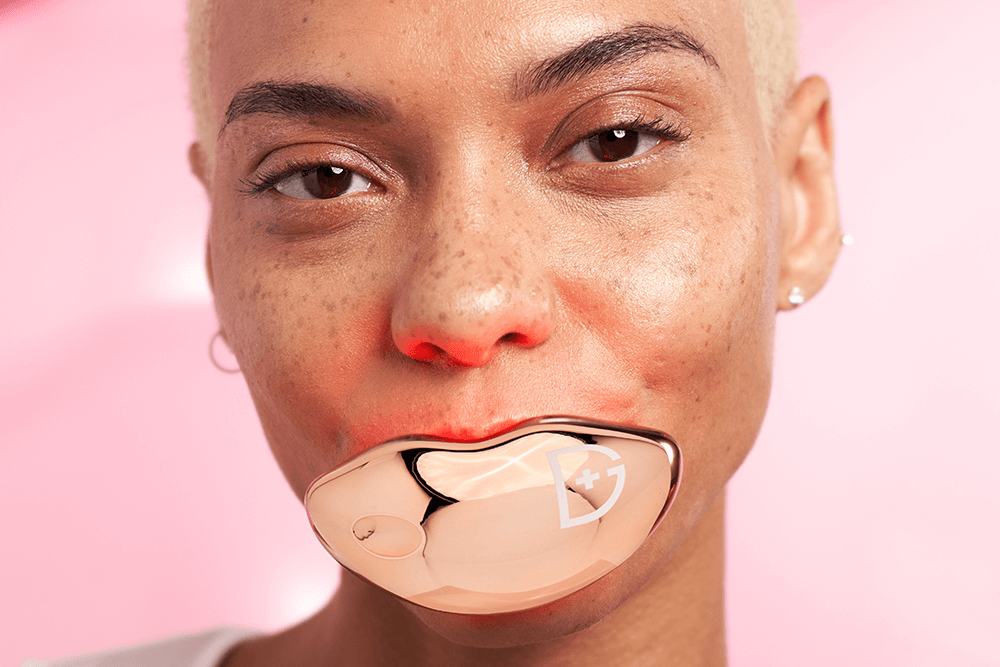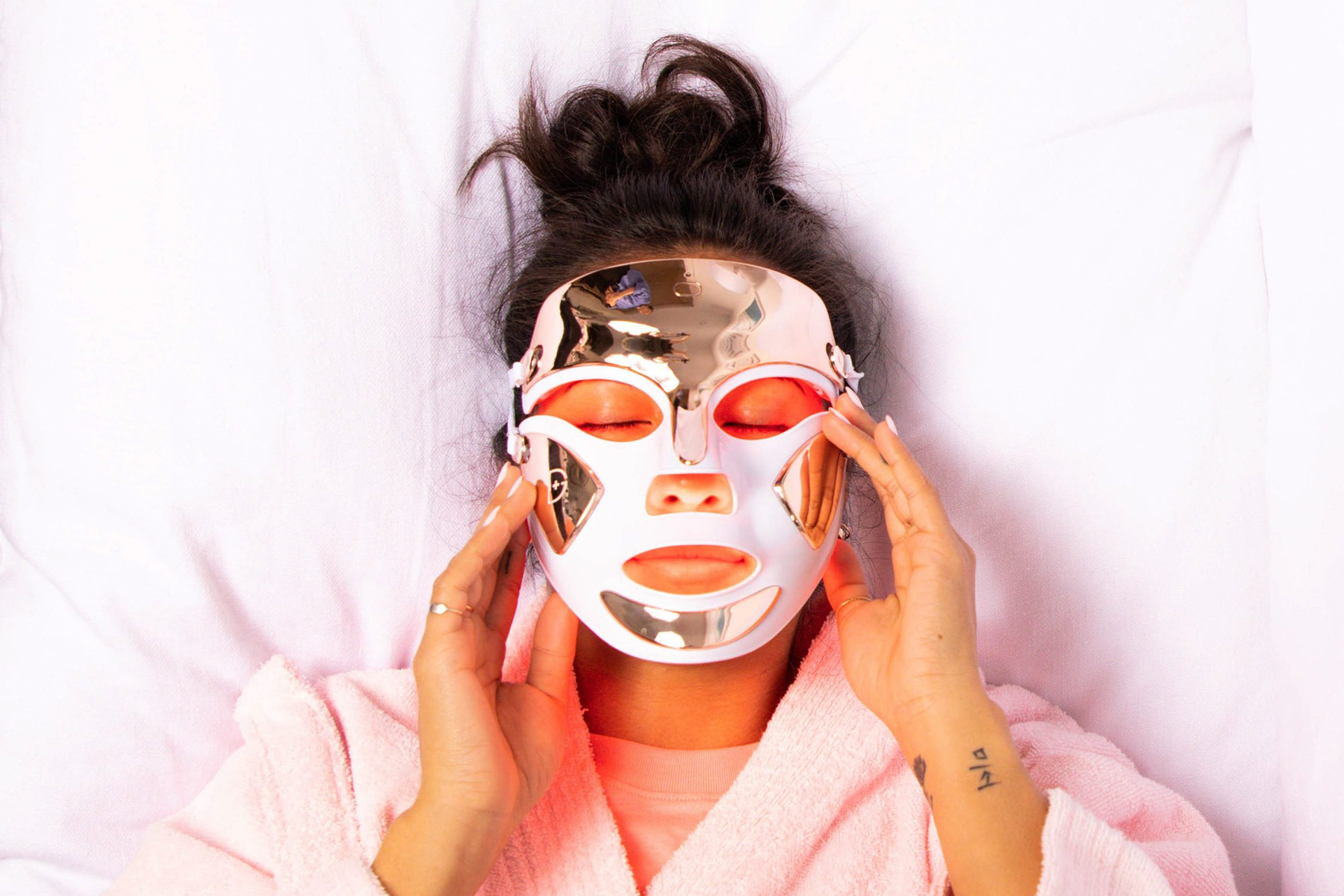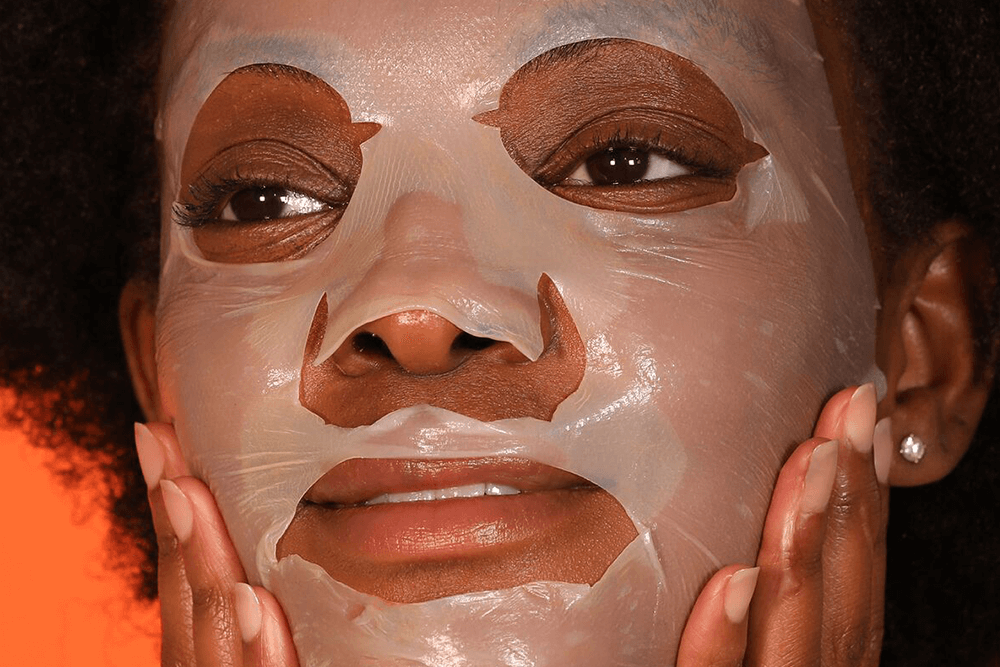The+Source
Face masks are the pinch hitters of skincare. Just like in baseball, face masks get called up when the existing lineup needs an assist. They give a boost to what you’re already doing in your daily skincare regimen and be just what an unexpected skin situation needs. And because face masks are available in so many different varieties, you can customize your product selection to address your unique skin type and skin concerns.
What is a face mask for skin?
A face mask is an intensive, topical skincare treatment. Face masks come in a variety of forms, such as rinse off, peel off, or sheet. What they all have in common is that they form a barrier on skin and are left on for a certain period of time (usually 5 to 20 minutes). As a result, the ingredients in a face mask are in contact with your skin until you remove the mask (either by washing your face or simply pulling off the mask). This allows them to penetrate the tissue more deeply than they would if you simply smoothed those ingredients on your face via a serum or cream.
The ingredients in face masks can be tailored to specific concerns, whether you want to moisturize dry skin or dry out an oily complexion. Depending on how they’re formulated, face masks can exfoliate, plump, brighten — and that’s just for starters.
How to use a face mask for your skin
Another benefit to face masks is that they’re convenient and super easy to use. That said, you still need to follow directions, in order to get the most out of your mask.
How to apply a face mask on your skin
You always, always, always need to apply a face mask to freshly washed and dried skin. A face mask works because its ingredients penetrate skin. You don’t want to impede that process with dirt, oil, makeup, or anything else. Use a gentle cleanser (like our Dr. Dennis Gross Alpha Beta AHA/BHA Cleansing Gel) as your first step.
Read the directions on your face mask. Some will list a specific amount of time the mask should be left on. Others are more flexible. If your mask has a time limit, set a timer on your phone so you don’t have to watch the clock. The directions will also tell you how to put on your mask of choice. For example, our Dr. Dennis Gross Vitamin C Lactic Biocellulose Brightening Treatment Mask is a sheet mask that comes sandwiched between two mesh layers. After you unfold your Biocellulose Brightening Treatment Mask, you need to peel off one mesh layer, apply the mask to your skin, then peel off the top mesh layer. On the other hand, our Dr. Dennis Gross Hyaluronic Marine Hydrating Modeling Mask is one you mix together and smooth onto your face, starting at the chin.
How often should you use a face mask?
Again, you need to look to your product’s label. Sometimes more isn’t more, and you won’t increase a face mask’s benefits by applying it daily when weekly is recommended. You also need to think about the skin concern you’re trying to solve. For example, if your skin is constantly dry and the only way to get relief is through an ultra-hydrating mask, you may need to take a look at the rest of your skincare routine. It’s possible that you should rethink your daily moisturizer and treatment serum in favor of ones with more hydration oomph.
When you’re using a mask to solve a specific issue, such as puffy undereyes, then you only need to use a mask like our Dr. Dennis Gross DermInfusions Lift + Repair Eye Mask when that concern crops up.
When in your skincare routine should you apply a mask?
It depends on the type of mask. You need to cleanse your face first regardless, but if your mask is the rinse-off type, it goes on right after you pat your skin dry. That’s because you don’t want to wash away the beneficial ingredients in the chemical peel or serum you used pre-mask.
On the other hand, you should cleanse and use your Dr. Dennis Gross Alpha Beta Daily Peel before a peel-off or no-rinse mask to encourage maximum ingredient absorption. After you do your mask, proceed with your regular skincare routine as usual.
How to remove a face mask from your skin
Once more, read the directions. Typically, clay masks need to be washed off, while sheet masks can just be peeled off and don’t need to be rinsed. In fact, it’s quite the opposite. Masks of this sort contain beneficial ingredients that can remain on skin to deliver optimum results. You don’t want to waste all that greatness by washing it down the drain.
What type of face mask should you use?
It’s helpful to keep a face mask “wardrobe” on hand, so that you can address skin concerns as they arise.
If you want: Brightening
Look for: a sheet mask with vitamin C
For brightening, vitamin C can’t be beat. And since you want to get as much of the magic ingredient in your skin as you can, a sheet mask is your best option since you massage any serum remaining on your face after you remove the mask (no rinsing!). Our biodegradable Dr. Dennis Gross Vitamin C Lactic Biocellulose Brightening Treatment Mask is not only loaded with vitamin C, it also contains skin-refining niacinamide.
If you want: Moisturizing
Look for: a leave-on mask with hyaluronic acid
Very few ingredients work as quickly and as well as hyaluronic acid when it comes to providing instant hydration. Like vitamin C, hyaluronic acid is another ingredient that keeps on giving. A leave-on, peel-off mask like our Dr. Dennis Gross Hyaluronic Marine Hydrating Modeling Mask helps saturate skin with hyaluronic acid. Not only is our Hyaluronic Marine Hydrating Modeling Mask oil free (so it works for everyone), it’s also formulated with marine algae, which helps take the hydrating power of hyaluronic acid to 11.
If you want: Blemish-busting
Look for: a rinse-off mask with clay
Clays like kaolin and bentonite are highly effective, oil-sucking sponges. Which explains why masks made for acne need to be washed off — once the clays have absorbed excess oil, you want to get that excess oil off your face. Our Dr. Dennis Gross DRx Blemish Solutions Clarifying Mask is formulated with both types of clay, as well as sulfur to zap P. acnes bacteria.
If you want: Everything eyes
Look for: an area-specific sheet mask
Especially when dealing with skin as sensitive as that around the eyes, you want to ensure that the ingredients in your mask are A-OK for that area, which is one reason to use a mask made for eyes. Just like it does for the rest of your face, a sheet mask will deliver ingredients you want to leave on long after the mask comes off. Our Dr. Denis Gross DermInfusions Lift + Repair Eye Mask brightens with vitamin C and soothes with green tea.
The face mask special case: LED
A face mask made with LEDs (light-emitting diodes), like our Dr. Dennis Gross DRx SpectraLite FaceWare Pro, is a unicorn in the face mask category. For one thing, using it every single day is strongly encouraged. Secondly, unlike other face masks that need to be used by themselves, your LED mask can work in tandem with your sheet mask to provide boosted benefits.
Dr. Dennis Gross Skincare masks and our POV
While it can be fun to whip up your own masks in the kitchen, using avocado, honey, milk, and whatever else you find in the fridge, you’re not going to get lasting skin improvements going the DIY route. At Dr. Dennis Gross Skincare, science is our North Star. Chemists formulate all our products to ensure their ingredients work synergistically, instead of cancelling each other out. And we only use ingredients that have proven track records — not just by us, but by independent scientific research carried out over decades. We also vet all our product delivery systems, whether it’s lyocell fibers or LEDs. We’re grounded in research because we were founded on research.
